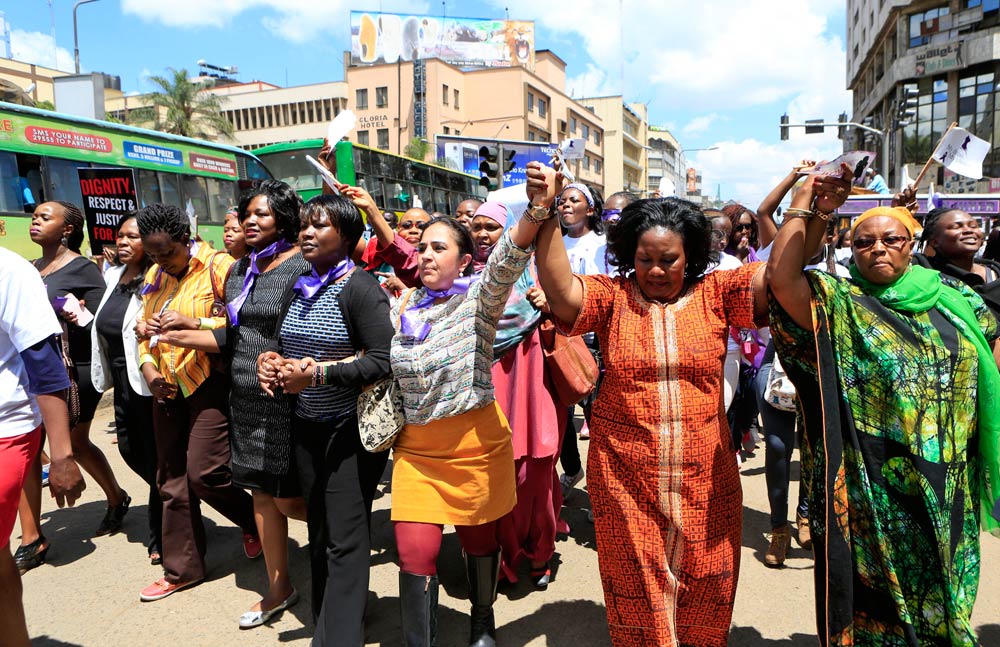
It is a funny thing, the African’s relationship with his Africanness. Like the Christian discusses ‘the flesh’ when falling into the temptation to commit sins, the African brings up the question of Africanness when defending his anti-social behaviour.
When a group of men in Kenya put it into their minds to undress and assault a woman in public because she was dressed “indecently”, some African men defended this move and shrouded their argument in the opaque veil of Africanness. On Facebook posts of this story, top-voted comments included pleas to African women to remain “decent”.
Although it may seem perfectly natural for me to choose anger in such a situation, I decided to skip that step and muse on the meaning of “decency” in the mind of the modern African.
To whom shall we credit such a notion, but the missionaries? To me, it seems the term is only ever used to demonise some part of the African population. Whether it is homosexuals, or women wearing miniskirts, the question of Africanness is only ever brought up when violations of human rights are committed by Africans. But where did such an idea begin?
It is easy to surmise my previous conclusion, with an examination of even the simplest look into African history. With the introduction of European missionaries to African society came the idea of “decency” – more so the idea that the scanty attire of traditional Africans was indecent.
For how else can this notion develop organically in the minds of people who live in one of the hottest climates in the world? Surely, it cannot. We cannot claim that an obsession with covering up the bodies of women – a very Victorian obsession – could have developed naturally in the minds of African people.
I say “African” and not “Kenyan” because this issue is not confined to one African country. Just last year Swaziland talked about enforcing anti-miniskirt laws that were penned during, gasp, colonial times. Even in my native Botswana, there was a time when young girls were warned against wearing revealing attire at the bus station. This is not a Kenyan issue, it is an African issue.
To take it further, this is not a dress issue, it is an identity issue. More specifically, this is a crisis of identity. There must exist some conflict in the mind of a man deeming a woman in a miniskirt indecent when only a century ago his ancestors deemed even less clothing perfectly acceptable. Particularly when events still exist in the contemporary setting where African women dress in said traditional attire without protest from the very men happy to police the dress of women in urban settings. The disjoint in logic can only be rationalised by a mind in conflict.
In condemning the miniskirt, the modern African joins in the tradition of condemning his ancestors – a tradition inspired by the European missionaries of the 18th century.
I say this because even those that condemned the behaviour of these men used words like “barbaric” and “primitive” to describe them – in other words, they used the language of colonialism. Even in the minds of those that deplored this behaviour, there swam images of some immoral ancestors that went about undressing women.
This too is a symptom of an identity crisis, of associating decency with Other, and then going further to associate the immoral acts committed in the name of correcting indecency with barbarism, or quite clearly pre-colonial Africanness.
Both assumptions are founded in missionary teachings, whether asserters know it or not. It is this idea that pre-colonial Africans truly were morally bankrupt. This is incorrect.
Even in the most patriarchal societies (if there is such a scale), I doubt that undressing a woman in public would happen without consequence. The dignity of a woman may have not belonged to her, but it belonged to somebody (likely, a father or husband) and doing whatever it took to violate it would not have gone unpunished. Our ancestors were not a group of speaking baboons: they too, had standards of conduct.
Ultimately, when situations like this arise, it is necessary that we examine our thinking and then act accordingly. We cannot allow people to use African culture as a scapegoat. We must be able to see if anything is to be deemed “barbaric” it is the idea that enforcing European missionary ideals in modern Africa is in some way “right.” We must examine our beliefs about decency and dignity and reconcile them with a switch in thinking: with an embracing of the realities that we inhabit. It should be a priority for us in this day and age to correct mentalities that defend any violations of basic human rights and use understanding of history to inspire the creating of environments that nurture and heal our social, religious and mental conflicts. And for this to be done, we should know that there are no [insert african nation] problems, but African problems.
Siyanda Mohutsiwa is a 21-year-old mathematics major at the University of Botswana. She is currently slumming it in Finland. Follow her on Twitter: @SiyandaWrites
